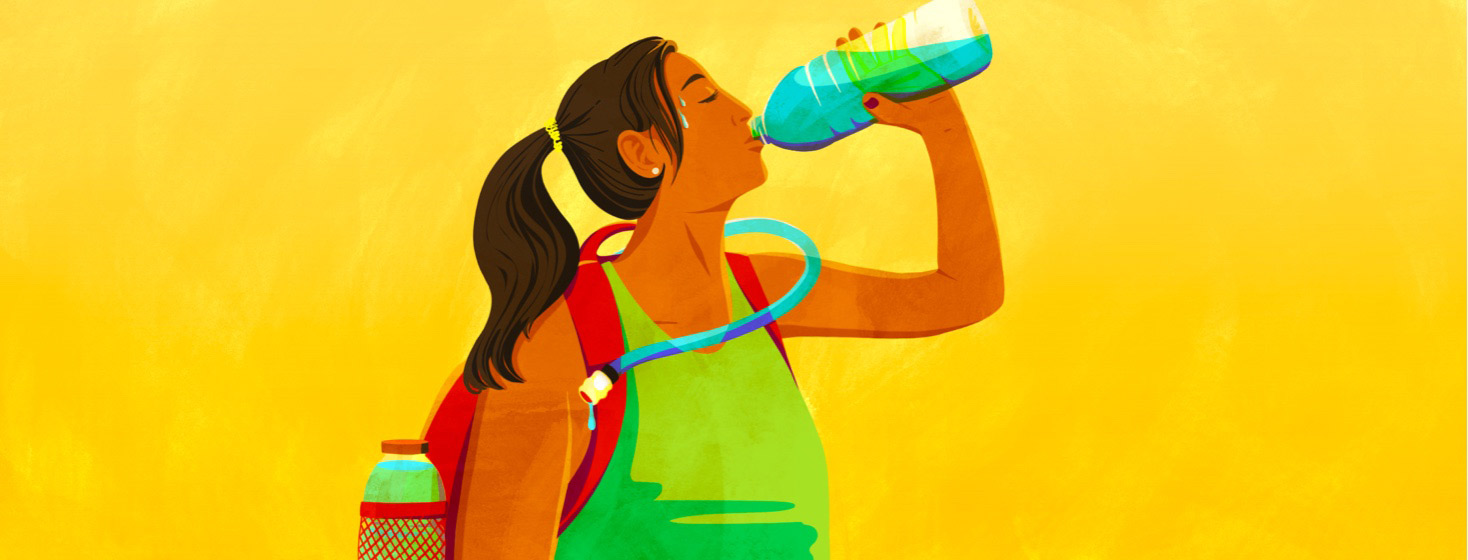When a Rise in Temps Means a Rise in Symptoms
We all get flares from time to time throughout the year, sometimes more than we would like, but have you ever noticed that they are either worse or more frequent during the summer? There have been numerous studies done as to why our Crohn's or colitis seems to flare more in the summer, but almost all studies have come up with the same answer: no one knows for sure.
Having said that, they also theorize that it could be because the hot weather may cause additional stress to your body, possibly causing your IBD to flare.
Keeping an eye on symptoms during the summer
Knowing your body – in particular your own IBD – during the different seasons helps in managing your symptoms. I know for me, the summer and winter are the 2 seasons that I struggle with, but especially the summer.
Even though everyone says to get outside and enjoy the sun, it is not so easy. The summer season poses a number of different obstacles, from dehydration to medications that possibly react with the sun. I limit my sun exposure and I always scope out the shaded areas while out, especially on vacation.
Featured Forum
View all responsesDehydration with Crohn's and UC
Dehydration is a major issue with IBD patients mainly because of diarrhea and how it causes a loss of fluids. So in the summer, our body sweats and loses more water on top of the fluid loss from diarrhea.
It is worse for me, as I have an ostomy and with no colon (the colon is where your body absorbs water). I need to take in way more water than I normally would. Knowing the signs of dehydration is very important.
Major fatigue from dehydration
I used to get tired a lot and it was years before I figured out that it was because I was dehydrated. I used to be so tired (major fatigue) and get headaches and dry mouth, but I thought it was just low iron. So now when I start to get these signs, I tend to drink more water or add an electrolyte additive. (I use Hydralyte, but Pedialyte is also a good solution.)
Tracking your water intake can help as well. I use a date book and keep notes each day. I have a 40-ounce bottle and try and maintain at least a 2.5 liters a day of water intake. I now know as soon as I start getting a dry mouth, I need to get water in me. But I always have my water bottle with me no matter where I am.
When we go on vacation, I drink bottled water because most tap water reacts with my Crohn’s for some reason. I always drink filtered water at home. Squash, watermelon, and other melons are also great for dehydration if you get sick of water.
Diet and sun exposure
Other things you can to in the summer to help ease your IBD symptoms, especially if you are in a flare, are to watch your diet and try and stick to what you know you can eat. It's easy to "fall off the food wagon" in the summer.
Avoiding the sun, or at least covering up while outside, can help especially if you are on medications that tend to increase your skin sensitivity. If you must frolic in the sun, use sunscreen with a high SPF and put it on heavy and often. My skin tends to burn very easy even with sunscreen.
Drinking with Crohn's or UC
And much as summer and alcohol go together (or so the TV ads tell us) alcohol can be a trigger for your IBD as well as causing dehydration. Water is always best but if you must drink alcohol, moderation is the word of the day here.
But summer is also a time to relax
While we know that one can never predict a flare, we can also take steps to limit them, especially during the summer. It is not easy, but it is also important to note that summer is a time to enjoy, relax, and take in some natural vitamin D.
We all know that relaxing is essential in helping with IBD management. And if the summer months and heat are putting additional stress on our bodies, potentially causing flares, then doing it responsibly is the key.
What have you learned over the years that help you cope with the heat of summer?

Join the conversation